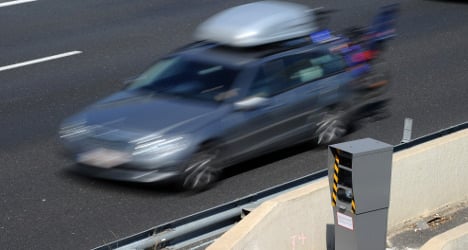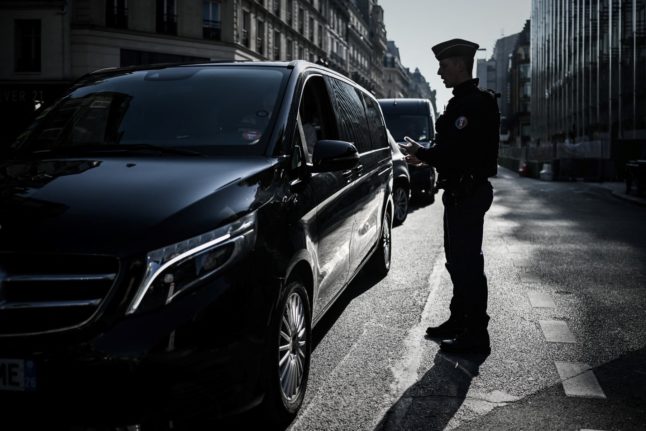DRIVING
France: ‘Virtual licenses’ for rogue foreign drivers
France is set to introduce "virtual driving licenses" for foreign drivers in a bid to eventually ban the worst offenders from the roads.
Published: 2 October 2015 17:41 CEST

Foreign drivers soon won't get away so easily with traffic infringements. Photo: AFP
France's Prime Minister Manuel Valls announced 22 measures on Friday in an effort to tackle a rise in road deaths across the country. These included making helmets compulsory for under 12s on bicycles and an additional 500 speed cameras across the country.
The final of the 22 measures was specifically targeted at foreign drivers, most of whom manage to escape any long term consequences that usually come with being caught for driving offences in France.
In other words British drivers will have to pay on-the-spot fines, but escape without any points being added to their driving licences.
But France has a plan to level the playing field and make sure speeding Brits don't exactly get away scot-free.
Foreign drivers will soon be monitored with a kind of “virtual driving license” that will keep track of their list of infractions. When they've fallen foul of the road rules too many times, they will lose their virtual license and their right to drive on France's roads – just as the French drivers do.
The virtual driving license will function “like a driving license with French penalty points”, the government noted, without going into further detail, other than to say the move was part of a bid to “restore the equal treatment between French and foreign drivers”.
Pierre Chasseray, who heads the French drivers' organisation 40 Million d'Automobilistes lambasted the idea.
“It’s a nice image that French people are all angels and the problem is foreign drivers, but I don’t like this kind of message,” he told The Local.
“I don’t have any desire to make other people the culprits, especially the thousands of tourists who come to France, it’s mean to do that.”
It also plans to create a register to track the foreigners who haven't paid fines for infractions committed in France.
It's no surprise that authorities want to crack down on foreigners, with foreign license holders responsible for 4.5 million speeding tickets last year alone – that's 5,139 per hour and around 21 percent of the total speeding fines in the country.
The worst offenders were the Belgians, followed by the Spanish, the Germans, and the Italians.
Friday's reforms come as Prime Minister Valls has been under pressure to cut road deaths, which saw an alarming rise of 19.2 percent in July this year. 2014 marked the deadliest year on French roads in 12 years with 3,384 people losing their lives.
The government added that it would be strongly advocating for mutual recognition of road penalties at a European level.
Url copied to clipboard!



 Please whitelist us to continue reading.
Please whitelist us to continue reading.
Member comments